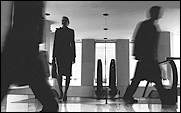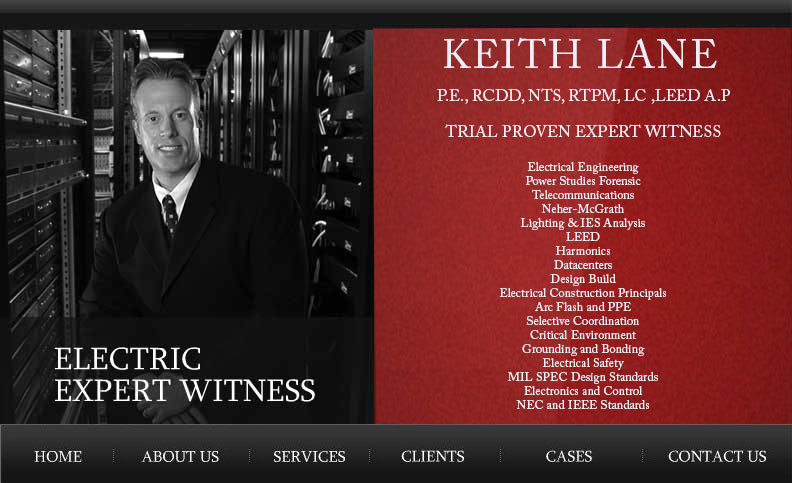Links:
- About Us
- Services
- Clients
- Cases
- Contact Us
- Electrical Engineering
- Power Studies Forensic
- Telecommunications
- Neher-McGrath
- Lighting & IES Analysis
- LEED
- Harmonics
- Datacenters
- Design Build
- Electrical Construction Principals
- Arc Flash and PPE
- Selective Coordination
- Critical Environment
- Grounding and Bonding
- Electrical Safety
- MIL SPEC Design Standards
- Electronics and Control
- NEC and IEEE Standards
Electrical and Construction Trial Experienced Expert Witness Services List:
Professional Licenses:
- Washington: 1998 (#35731)
- Alaska: 2001 (#10332)
- California: 2001 (#E16471)
- Arizona: 2002 (#38527)
- Oregon: 2001 (66879PE)
- Utah: 2001 (#4909891)
- Montana: 2001 (#14712PE)
- Idaho: 2001 (#10104)
- Hawaii: 2002 (#10622)
- Virginia: 2007 (#046144)
- Pennsylvania: 2007 (#PE075498)
- New York: 2011 (#089223)
- Nevada: 2002 (#015900)
- Minnesota: 2013 (#51206)
- Texas: 2014 (#118106)
- Iowa: 2014 (#22461)
- Wyoming: 2014
- NCEES Record Holder
-
Credentials:
- Professional Engineer P.E.
- RCDD
- NTS
- Mission Critical Advisory Board
- LC Lighting Certified Professional.
- LEED AP BD+C
- IBEW - Electrical Journeyman
- General Electrical Administrator
The ability to comprehend complex issues and then explaining them in simple language that all stakeholders can understand is the key to our success both in large construction projects and the courtroom.
– Keith Lane
 |
 |
 |
 |
 |
 |
 |
 |
 |
 |
 |
 |
 |
 |
 |
 |
 |
 |
 |
 |
 |
 |
 |
Electrical and Construction Trial Experienced Expert Witness:

 Electric Expert Witness. We provide Trial experienced Electrical Engineering Expert witnesses that assist in cases related to Data Centers, Neher-McGrath, Selective Coordination, Arc-Flash, PPE, Power Studies forensics, Harmonics, and much more.
Electric Expert Witness. We provide Trial experienced Electrical Engineering Expert witnesses that assist in cases related to Data Centers, Neher-McGrath, Selective Coordination, Arc-Flash, PPE, Power Studies forensics, Harmonics, and much more.
Electrical failures in a building or construction site can result from defective equipment, lousy engineering, faulty installation, or other site-specific factors. The results are often Fires, construction accidents, data loss, product failure, and many other problems contributing to economic loss and life safety.
For these issues, it is crucial to get an electrical engineering expert who understands the complexities of an electrical system and understands the construction environment, and can provide objected expert opinion.
Electric Expert Witness is Trial Experienced Electrical Engineering and Construction Experts. We are comprised of, Electrical Engineers (PE), Registered Communications Distribution Designer (RCDD), Network Transport System Specialist (NTS (LAN), Registered Telecommunications Project Manager (RTPM), Lighting Certified Qualified Professional (LC), LEED Accredited Professional (LEED AP), consultants, contractors, IBEW - Electrical Journeyman and other experienced professionals who will assist in Case Investigations, Pleadings, Discovery, Pre-Trial and Trial involving:
Trusted in cases nation wide, Electric Expert Witness will provide an industry-leading Trial experienced Electrical Engineering Expert Witness to provide objected expert opinion. Contact us today Email or Call Us Now at 206-499-5221

 Lane Coburn & Associates, LLC.
Lane Coburn & Associates, LLC.5535 Lake Washington BLVD NE #309
Kirkand Washington 98033
Main Office Phone: 206-499-5221
